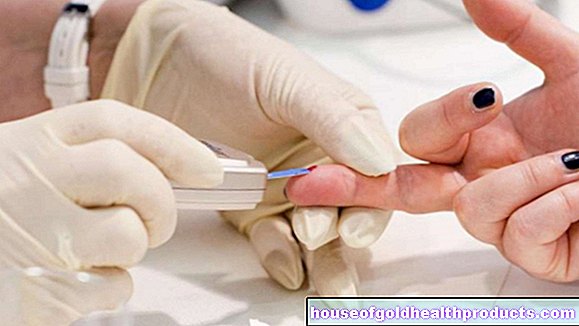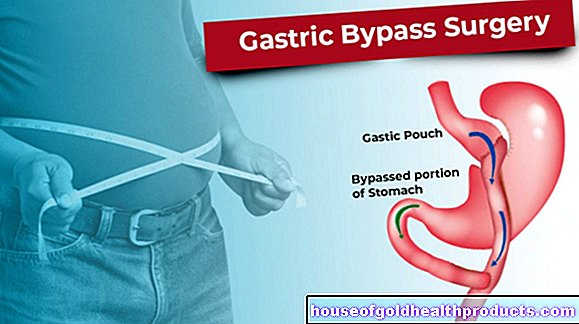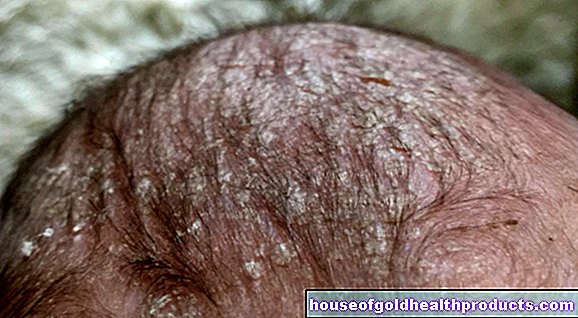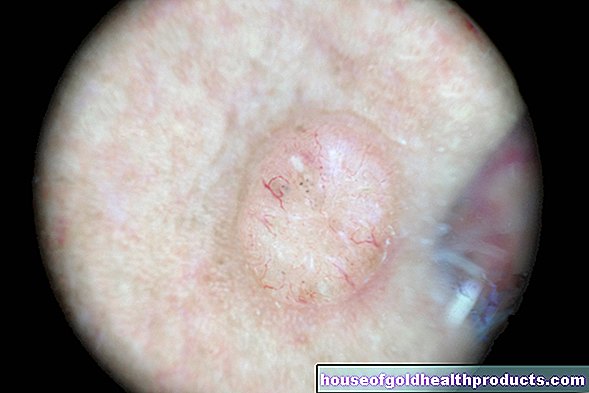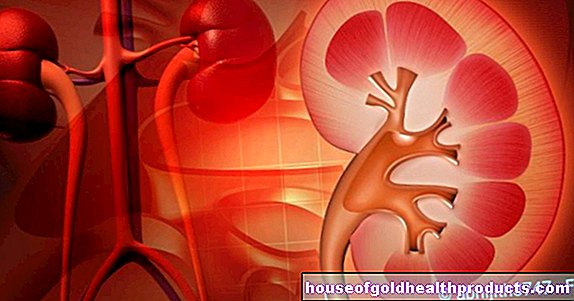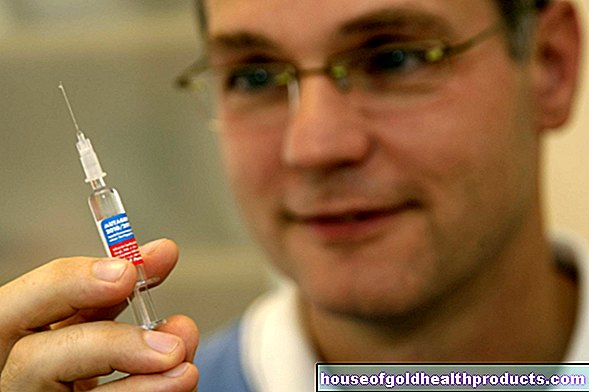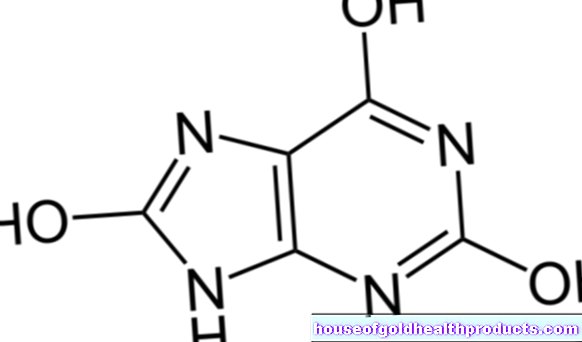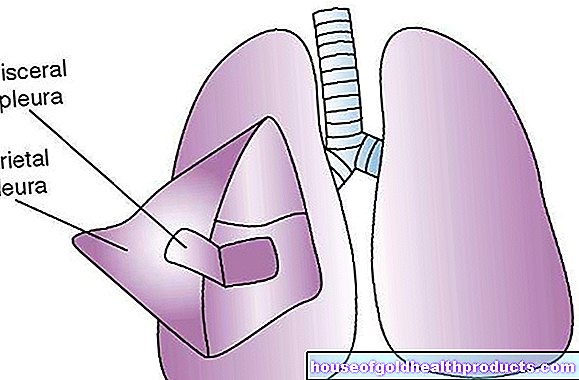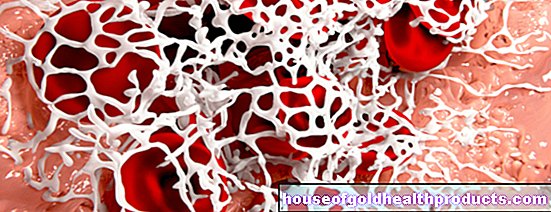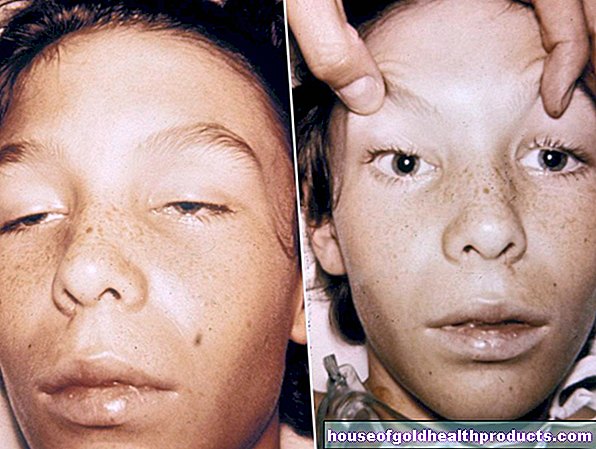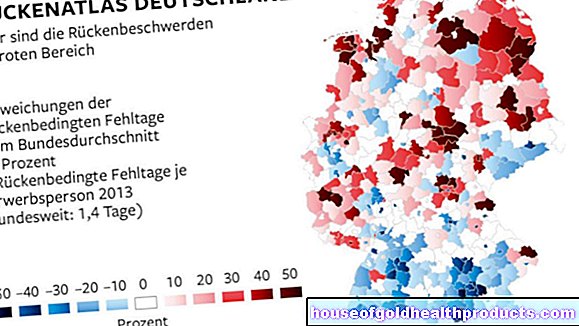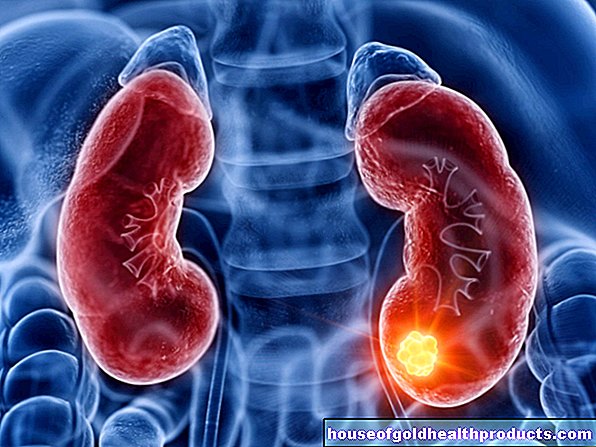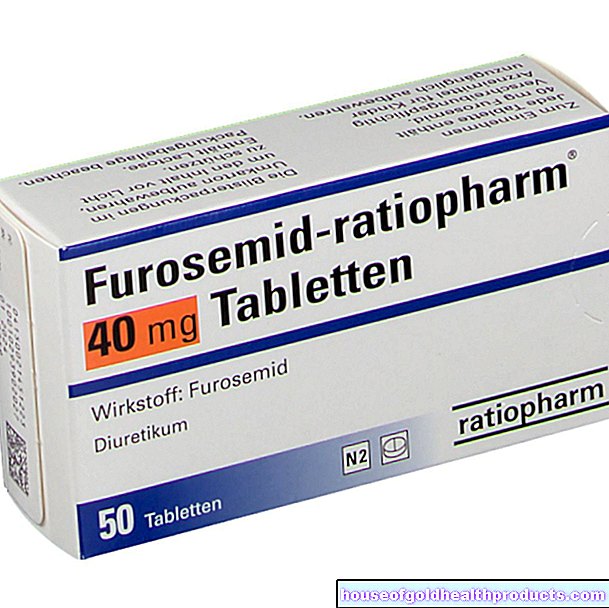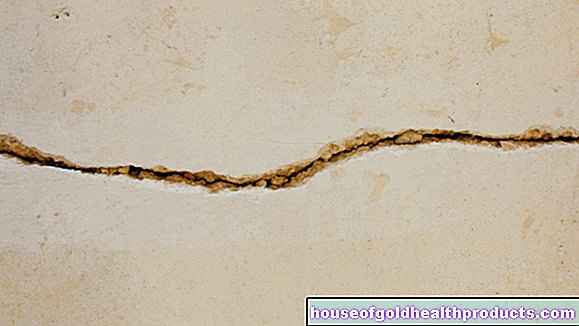ADHD - adults
Julia Dobmeier is currently completing her master's degree in clinical psychology. Since the beginning of her studies, she has been particularly interested in the treatment and research of mental illnesses. In doing so, they are particularly motivated by the idea of enabling those affected to enjoy a higher quality of life by conveying knowledge in a way that is easy to understand.
More about the experts All content is checked by medical journalists.Attention Deficit Hyperactivity Disorder (ADHD) is often mistakenly perceived as a condition that only affects children and adolescents. One reason for this is that the fidgetiness, which is often so pronounced in children, subsides in adulthood. In fact, however, the disorder that develops in childhood and adolescence persists into adulthood in around 60 percent of those affected. Read all the important information about ADHD adults here.

ADHD Symptoms: Adults
The symptoms of ADHD do not remain the same in every age group, but change over the course of life. In adulthood, motor hyperactivity is usually no longer as pronounced as it is in children, which is why one often only speaks of attention deficit disorder (ADD). Internal restlessness, forgetfulness, and ignorance move to the fore of ADHD and ADD in adults. Symptoms such as impulsive behavior and rash actions are still present. Almost all adult ADHD patients feel restless and driven internally. Far too rarely are these signs recognized as ADHD symptoms. As a rule, the person concerned has shown these behaviors for so long that they are perceived as part of their personality.
ADHD adults: organizational difficulties
Difficulties with planning and organization are typical symptoms of ADD. As a result, adults often fail to achieve the goals they originally set in their professional and private lives. Adult ADHD is often associated with poorer career opportunities. ADHD in adults often manifests itself in behaviors that can be disconcerting and negligent in the environment. Problems such as a lack of stamina as well as delays and disorder.
ADHD adults: attention deficit disorder
The inability to concentrate on one thing for long periods of time means that those affected forget tasks or only partially complete them. This happens especially when the interest in the task is not great. But if you are enthusiastic about a topic, you can focus on it with great perseverance.
The attention disorder can have far-reaching consequences. Job loss is a common consequence of ADHD or ADD in adults. ADD adults also have an increased risk of accidents due to their poor ability to concentrate.
ADHD adults: impulsivity
Adults with ADHD often act impulsively. You make decisions spontaneously from your gut. Their mood can also change quickly.
They react extremely sensitively to criticism and are quickly injured. At the same time, they are not reluctant to speak out bluntly to others. This behavior can be very stressful for those around you. It then helps to realize that people with ADHD often have trouble regulating their emotions and behavior. Most of the time, they only realize afterwards that they have behaved wrongly.
Their impulsiveness can also be dangerous for ADHD adults in traffic.
ADHD adults: low tolerance for stress and frustration
The reduced ability to control impulses has a negative effect, especially in combination with stress. New situations and tasks are therefore a major challenge for adults with ADHD. They create stress that those affected find it difficult to cope with due to their lack of organizational skills. If things don't go as hoped, they are often very frustrated. This often manifests itself in irritability and hot temper. The low tolerance to stress and frustration complicates both professional and social life.
ADHD adults: overactivity
The typical motor hyperactivity of childhood is found in ADHD adults in a more weakened form. However, many sufferers have difficulty sitting still for long periods of time. They drum their fingers and rock their feet to reduce their anxiety. A symptom that often occurs in adulthood is a strong urge to talk and talking in between.
The positive side of ADHD
Overall, adults with ADHD react much more emotionally than other people and experience feelings more intensely - even the positive ones. They also approach things more openly and playfully and often develop particularly original ideas. If they manage to channel and use their wealth of ideas, adults with ADHD can even be extremely successful at work. It is crucial that those affected are interested in their work. If you enjoy your work, bring full commitment and a high level of motivation. Your performance can then even be above average.
Comorbidities of ADHD
The occurrence of other mental disorders is often related to ADHD in adults. Symptoms such as being very anxious or feeling depressed can indicate an anxiety disorder or depression. There is an increased risk of depression and anxiety, especially in the dreamy form of ADHD, which occurs mainly in women. Adults with ADHD are also more likely to have personality disorders.
Research has shown that people with ADHD who are left untreated tend to resort to addictive drugs. With the consumption of cannabis, alcohol or nicotine, they try to become calmer or to improve their performance. You use the drugs to a certain extent for self-medication. If drug addiction has developed, it must be treated before starting the actual ADHD therapy.
ADHD adults: examinations and diagnosis
In adulthood, the symptoms of attention deficit (hyperactivity) disorder express themselves slightly differently than in childhood. However, there are no specific diagnostic criteria for ADHD in adults. The psychiatrist or psychotherapist therefore orientates himself on the diagnostic criteria of ADHD in childhood and adolescence.
Detecting ADHD in adulthood is especially difficult. For one, the symptoms can be due to another mental disorder. On the other hand, in order to diagnose ADHD in adulthood, the doctor or psychologist must ensure that the disease already existed in childhood.
For the examination, the doctor or psychologist conducts a detailed discussion with the person concerned. By asking specific questions, the specialist can determine which signs point to ADHD and whether there are any other mental disorders. In order to rule out other causes, such as thyroid disease or sleep disorders, the doctor will also perform a physical examination.
ADHD adults: therapy
Adults diagnosed with ADHD do not necessarily need treatment. However, if the disorder is pronounced and affects several areas of life (work, leisure, couple relationships), a combination of medication and psychotherapy is often useful.
ADHD adults: psychotherapy
As far as we know today, ADHD cannot be cured. Sometimes, however, the disorders partially recede over the years. Some of those affected also develop coping strategies with which they successfully master everyday life and work. Above all, difficulties with work organization and professional and private communication can be treated well with behavioral therapy. Through what is known as self-induction training, ADHD patients learn how to better control their impulsiveness. Behaviors are practiced individually and in groups that make everyday life with colleagues, family or partner easier.
ADHD adults: medication
For a long time, experts thought that ADHD would only occur in children and adolescents. Until a few years ago, the active ingredient methylphenidate was therefore not allowed to be prescribed to adults in Germany. Since 2011, doctors have also been able to prescribe ADHD medication for adults. The drugs with the active ingredients methylphenidate and atomoxetine are primarily used.
Tags: news Baby Child interview